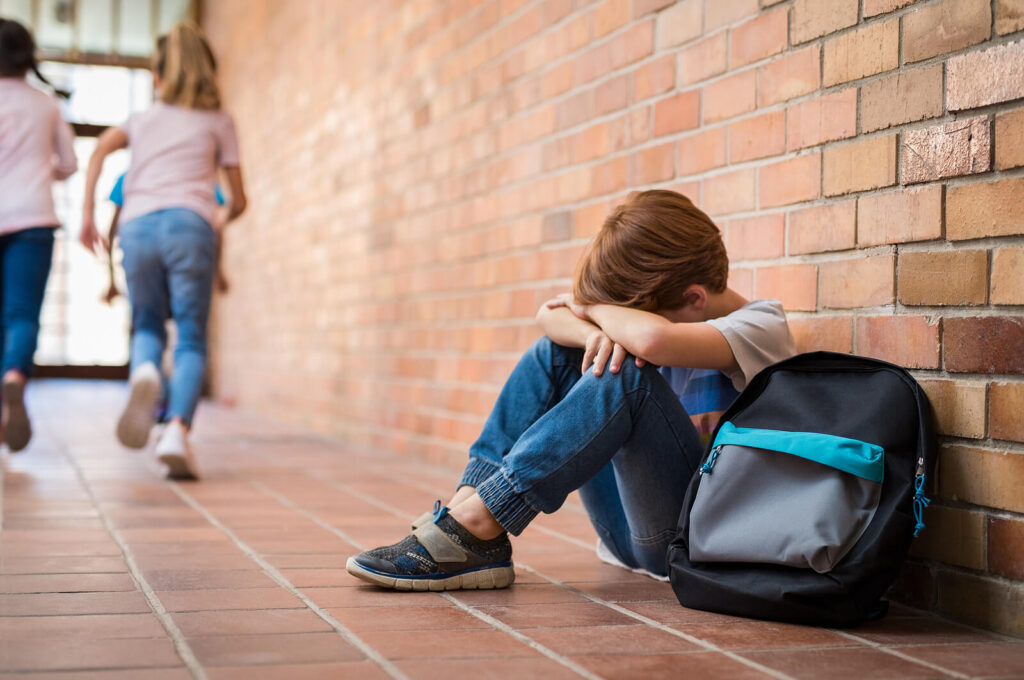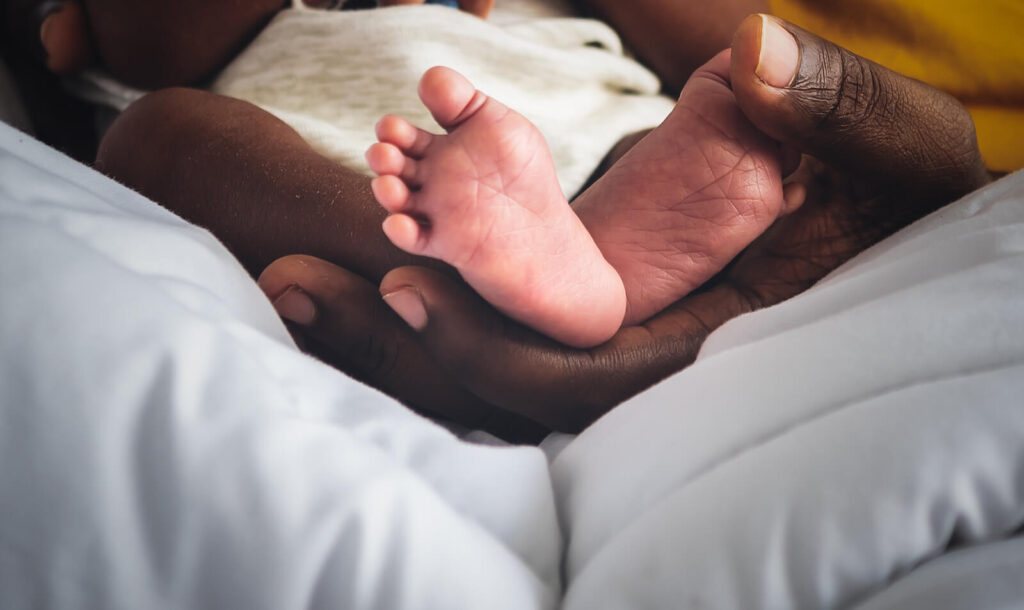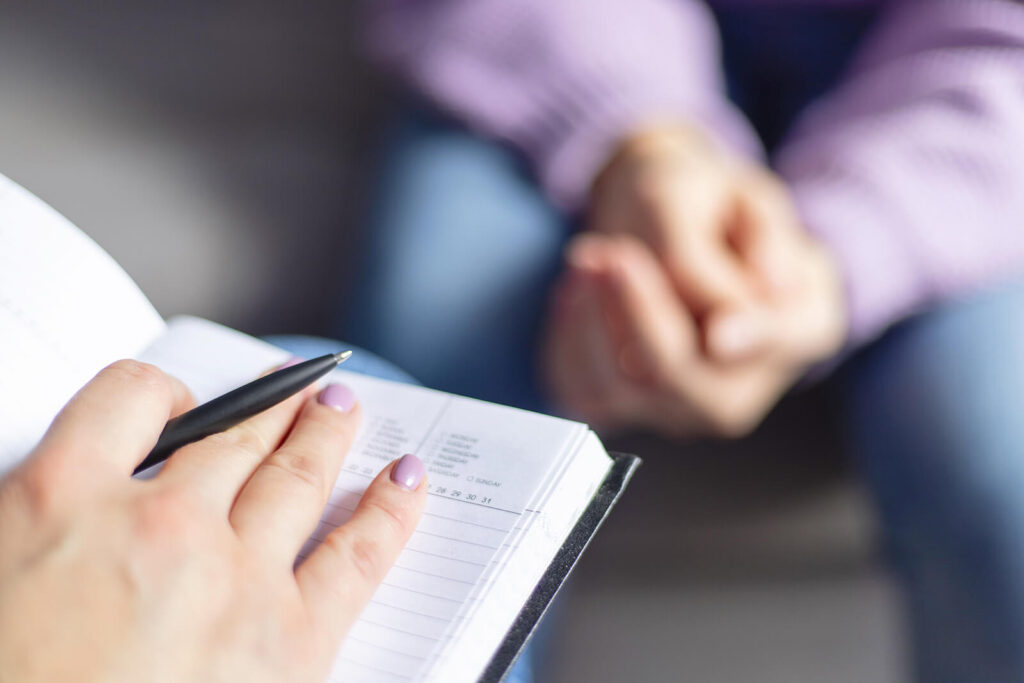What if we told you that your childhood experiences have a significant impact on your physical and mental health as an adult? This may seem like common sense to some, but it didn’t use to be. The Adverse Childhood Experiences Study (ACES) reshaped our understanding of childhood trauma.
The study found that the more adverse experiences people have in childhood, the poorer their health is physically and mentally. This knowledge is power. With this information, we can change our cultural perceptions of adverse experiences and support those who need it most. In this blog, we will be breaking down my discussion on the Adverse Childhood Experiences Study from my Trauma Chat Podcast, episode 9.
As a disclaimer, this blog will mention traumatic childhood events such as physical and sexual abuse. I encourage you to trust your instincts and to stop reading if you believe that this will be triggering for you.
Childhood Trauma Is Not Always Easy to Understand
Today we know that the experiences we have in our childhood can have a lasting impact on our lives, especially adverse experiences. We refer to these experiences as “childhood trauma”. However, this wasn’t always the case.
It was previously to be a common belief that the negative experiences of people’s childhood wouldn’t impact them as adults. The logic was that children do not develop enough to understand the negative experiences of their early life so they would live through it, “get over it”, and would be unaffected by it as adults.
Fortunately, this idea was questioned, and eventually, it was tested through the Adverse Childhood Experiences Study.
ACES Was Created to Understand the Impact of Childhood Trauma
The Adverse Childhood Experiences Study is one of the largest studies on the effects of adverse childhood experiences to have ever been conducted. It began in 1995 and was carried on through 1997 by Kaiser Permanente.
If you aren’t familiar with Kaiser Permanente, they are one of the largest healthcare providers in the United States. The participants of the ACE study were actually members of their insurance plan. So as you can imagine, they had a very large pool of participants to work with. They surveyed thousands of their members, in fact over 17,000 members, to conduct the ACE study.
The goal of the study was to compare people’s adverse childhood experiences with their state of health as adults. They were looking to see if there was a connection between the two to understand how our experiences in childhood impact us later in life.

How Did They Study the Impact of Childhood Trauma on Adults?
To do this, they asked participants whether they had experienced different adverse events in their childhood. The different forms of adverse experiences that they asked about included verbal abuse, physical abuse, sexual abuse, neglect, and witnessing abuse. Additionally, they asked about the occurrence of divorce, mental illness, crime, and drug abuse among family members. Then they compared participants’ childhood adverse experiences with their current health.
Before we get into the specific questions it’s important to note that the types of experiences that were asked about do not encompass all forms of childhood trauma. If you had an experience that falls outside of the questions that were asked, please know that your experience is valid and that it can still have a lasting impact on your life. All studies have limitations and room for improvement, and the ACE study is no different.
The specific questions that they asked were:
- Did a parent or other adult in the household often swear at you, insult you, put you down, humiliate you, or act in a way that made you afraid that you might be physically hurt?
- Consider if a parent or other adult in the household often pushes, grabs, slaps, or throws something at you? Or did they ever hit you so hard that you had marks or were injured?
- Did an adult or person at least five years older than you ever touch or fondle you, or have you touched their body in a sexual way? Or did they attempt to or actually have oral, anal, or vaginal, intercourse with you?
- Think how you often felt that no one in your family loved you or thought you were important or special, or your family didn’t look out for each other, feel close to each other, or support each other?
- Did you often feel that you didn’t have enough to eat, had to wear dirty clothes, or had no one to protect you? Or were your parents too drunk or high to take care of you, or take you to the doctor if you needed it?
- Were your parents ever separated or divorced?
- Was your mother or stepmother often pushed, grabbed, slapped, or had something thrown at her? Or often kicked, bitten, hit with a fist, hit with something hard, or ever repeatedly hit over at least a few minutes? Or was she ever threatened with a gun or knife?
- Did you live with anyone who was a problem drinker, alcoholic, or used “street drugs”?
- Was a household member depressed or mentally ill, or did a household member attempt suicide?
- Did a household member go to prison?
Limitations: Not All Forms of Childhood Trauma Were Assessed
Now that you’ve read the questions you can see how they aren’t all-encompassing. There are many forms of trauma that weren’t mentioned. For example experiences of racism, homelessness, and involvement with the foster care system or the juvenile system were not assessed. Additionally, one of the questions only mentioned the abuse of a mother/stepmother and failed to address the abuse of men, siblings, and other family members.
These are all limitations of the study that should be taken into account. However, this study is still a crucial part of our understanding of childhood trauma and how it impacts our lives. So, let’s get into that.
What Did the Adverse Childhood Experiences Study Find?
As a reminder, the purpose of the ACE study was to understand how adverse experiences in childhood impact the lives of adults. They did this specifically by looking at the relationship between childhood adverse experiences and health in adulthood.
The results of the study showed that the more adverse experiences a person had in childhood, the poorer health they had physically and mentally in adulthood. The study also showed that having an adverse or traumatic experience in childhood is much more common than we previously believed.
Why Does This matter?
This is extremely valuable information for several reasons. One, it lets us know just how prevalent childhood trauma is in the United States. It’s very common. Two, it shows us that this common problem affects individuals over their entire lives. Specifically, it causes poor physical health and mental health. And individuals having poor physical and mental health is bad for individuals, but it’s also bad for the society in that they live in.
Our Cultural Understanding of Childhood Trauma
In the United States, our attitude of rugged individualism often leads us to blame people for their own life circumstances. For example, if people are living in poverty or if they have poor health we tend to believe that it’s a result of their own actions.
We may say, “Well, they must not have tried hard enough. They must not want to work.” Or if they’re ill we say, “They must not be taking good care of themselves. They must not eat well, or they must be lazy.”
Through our understanding of childhood trauma and how it impacts us, we can see that these descriptions and characterizations of people are completely untrue.
The ACE study found that there was a direct link between childhood trauma and poor physical and mental health in adulthood. This includes depression, suicide, being violent, and substance abuse. It also includes diabetes, cancers, heart disease, and obesity. The study showed us that poor physical and mental health isn’t always a result of poor choices; rather, it can be a result of childhood trauma.
Our Understanding of Who is Impacted by Childhood Trauma
It’s almost important to reiterate that the people who participated in this study had Kaiser Permanente insurance. At that time, before universal healthcare was available in our country, people received health insurance through work. So, the population that was surveyed here was largely middle-class, college-educated people who had health insurance.
Since the participants of the study were “high functioning” adults, the ACE study showed that childhood trauma is common in all populations within the United States, and not just those who are disadvantaged.
Though it is worth noting that the ACE score is meant as a “guideline”. If you experienced other adverse events over months or years, then those experiences would likely increase your risk of health consequences, depending on the positive childhood experiences you had. So a person who experiences one isolated traumatic event may have less health consequences compared to someone who repeatedly experienced traumatic events.
This is important because it helps us to understand the other factors that contribute to childhood trauma and the effect it has on people in adulthood. While everyone can experience childhood trauma and be affected by it throughout their life, our experiences are still shaped by the positive experiences we have as well.
Adverse Babyhood Experiences
By helping us understand adverse childhood experiences, the ACE study also contributed to our understanding of adverse babyhood experiences.
Adverse Babyhood Experiences (or ABES) is a term coined by Veronique Mead. Mead’s work is focused on the connection between childhood and babyhood traumatic experiences and attachment wounds, and chronic illness. She’s a former physician who became a trauma therapist. She now writes about research on chronic illness, and childhood and babyhood trauma link.
Mead’s ABE concept focuses on 10 categories of adverse babyhood events.
- Maternal loss trauma
- Lack of support
- Emotional stress
- Physical stress or illness
- Maternal complications
- Baby complications
- Mother-baby separation
- Birth weight
- Difficulty breastfeeding
- Early symptoms in babies and parents
All of these experiences (the mother’s prior history of miscarriage, how much the mother received support during pregnancy, and illness that the mother may have had during pregnancy) can be traumatic for the mother. But, they can be traumatic for the baby as well.

What Do We Do With This Information on Babyhood and Childhood Trauma?
Often people’s reaction to adverse childhood or babyhood experiences is sadness and fear. This is valid, they are scary and sad experiences. However, I believe that this information can be hopeful too.
Understanding and Preventing Babyhood and Childhood Trauma
If you know that you had these experiences and that they can cause trauma, then you can understand why you feel the way that you do. And as a mother or soon-to-be mother, you can identify and possibly prevent some experiences that you might not have realized could contribute to a long-term health concern.
We want to have a thriving society where people live to their fullest potential and have healthy, long, happy lives. In order to do this, we need to do everything we can to prevent long-term harm from childhood trauma and prevent childhood trauma itself. But, we can’t change what we don’t see as a problem.
We’re all connected. We need to care about other people outside of who live in our house, in our neighborhood, and in the community that’s familiar to us. We need to really care about people who are struggling more than we are. This means taking steps to understand childhood trauma, prevent it, and heal from it. Not just within our own household or family, but also in our society as a whole.
Healing from Childhood Trauma
Natin Burke Harris points out in her Ted Talk on the epidemic of childhood trauma, that we don’t like to think about the truth of childhood trauma. When we look at the prevalence of childhood trauma, we get overwhelmed because so many of us have childhood trauma too. As a result, we don’t want to think about it. But it’s there and it can drive our behavior and our emotions under the surface.
However, trauma doesn’t have to control our lives. Healing from trauma is possible! But you can’t heal if you don’t recognize that what you are experiencing is trauma. Knowledge is power.
While childhood trauma can be uncomfortable to discuss, I hope that you have gained some valuable information. Possibly to help you understand what you need to heal in your own life. I also hope that you have a sense that there’s an abundance of possibilities for your life. If you are affected by trauma at any stage in your life, please know that healing is possible. And help is available for you.

Find a Trauma Therapist Near Me
It can be difficult to think about the ways that your childhood experiences and traumas may be impacting you as an adult. However, you don’t have to go through this alone. Working with a trauma therapist can help you to process and understand your trauma. They can also help you to overcome the effects of your trauma and heal from your experiences. If you’re considering therapy, you can find an experienced trauma therapist near you by clicking here.
Trauma Chat Podcast
If after reading this blog you’re interested in learning more about childhood trauma, you may want to check out our Trauma Chat podcast. In the podcast, I discuss topics such as the effects of trauma, attachment style, and the polyvagal theory. Additionally, our Therapy Chat podcast has some great episodes related to trauma as well. In one episode, I even talk with Dr. Veronique Mead about chronic illness and trauma.
Knowledge is power, and while podcasts and blogs aren’t a replacement for therapy, they can be useful resources while you’re looking for a therapist. For many people, it can also be helpful to learn more about trauma while they’re in therapy to get a deeper understanding of their experience.
We hope that this information is helpful to you. Remember, healing is possible and you don’t have to go through this journey alone.




